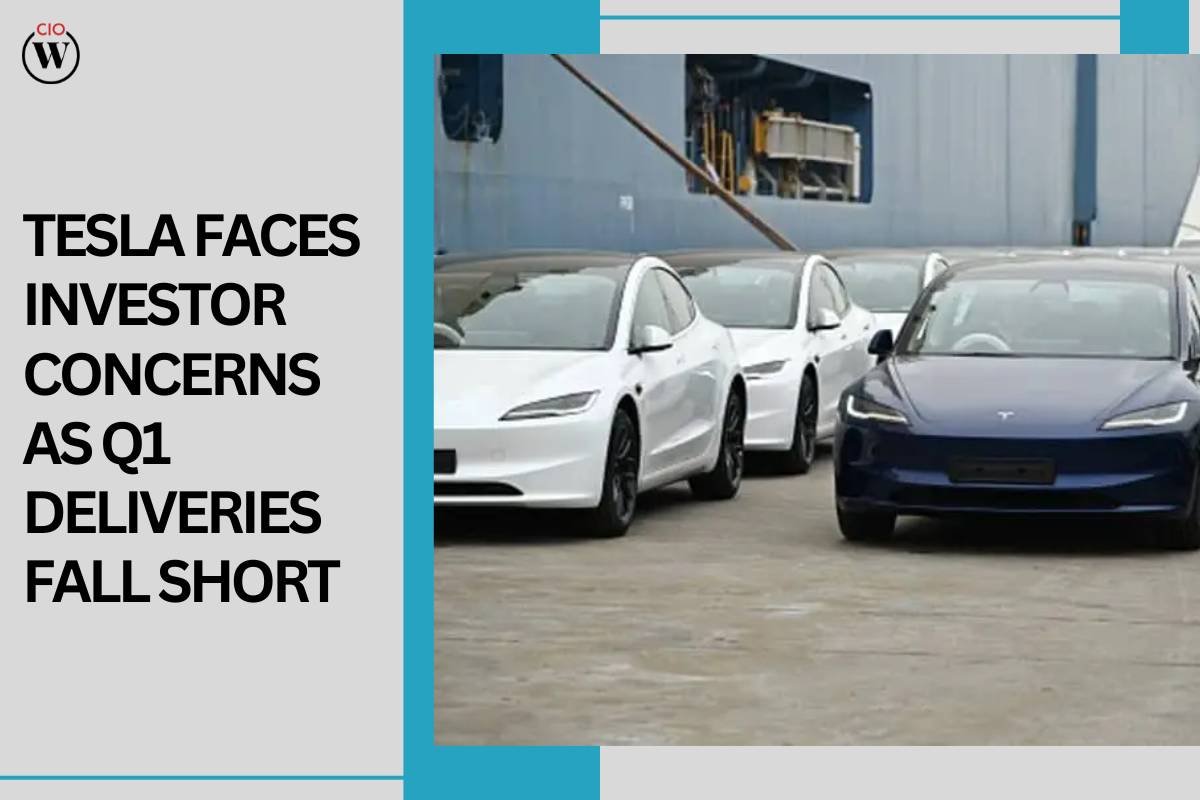Source – Super News
Tesla, Inc. (TSLA) experienced a significant downturn in its stock value following a disappointing first-quarter delivery report. The electric vehicle (EV) giant had previously cautioned investors in January about a lower growth rate compared to the previous year, setting the stage for apprehension. However, the actual delivery figures fell well below expectations, exacerbating concerns among shareholders.
During the first quarter, Tesla reported global deliveries totaling 386,810 vehicles, a considerable shortfall compared to the estimated 449,080 compiled by Bloomberg. Similarly, the production figure of 433,371 vehicles also missed estimates, which stood at 452,976. This downturn represents a marked decrease from the previous quarter’s delivery performance, where Tesla delivered 484,000 vehicles. Furthermore, it marks the first year-over-year decline in Q1 deliveries since 2020, painting a concerning picture for investors.
In response to the disappointing report, Tesla’s stock closed down by 4.9% on Tuesday, reflecting investor unease with the company’s performance. Analysts, such as Dan Ives from Wedbush, described the Q1 results as an “unmitigated disaster,” underlining the pivotal moment for Tesla’s narrative, urging CEO Elon Musk to address the challenges promptly to avoid further turmoil in the market.
Inventory Concerns and Production Issues
Examining Tesla’s production across its model lines, the disparity between production and delivery figures raised additional concerns among analysts. the company reported producing 412,376 Model 3 and Model Y vehicles, delivering 369,783 units. Meanwhile, production of other models, including the anticipated Cybertruck, alongside premium models like Model S and Model X, amounted to 20,995 vehicles, with deliveries standing at 17,027.
This discrepancy, approximately 46,000 vehicles, suggests a potential inventory buildup, hinting at underlying demand challenges. Emmanuel Rosner, an analyst from Deutsche Bank, highlighted the possibility of a demand issue beyond the known production bottlenecks in Fremont and Berlin. Such concerns compound the pressure on Tesla to address its production and delivery strategies to regain investor confidence.
Pricing Strategy and Future Outlook
The delivery report comes in the wake of Tesla’s decision to increase prices for its Model Y SUV across various markets. In the United States and China, Tesla raised prices by $1,000 and 5,000 yuan ($675), respectively, for different trim levels of the Model Y. This move, intended to offset production and supply chain challenges, may pose further risks to the company’s average selling price (ASP) for the remainder of the year, as noted by analysts.
Looking ahead, the company is scheduled to release its first-quarter financial results on Tuesday, April 23. The upcoming earnings report is anticipated to provide insights into the financial implications of the delivery miss and shed light on the company’s strategies to address the challenges it faces in the evolving EV market landscape. Investors remain watchful, awaiting signals of a turnaround from Tesla’s leadership to navigate the company through this challenging period.









